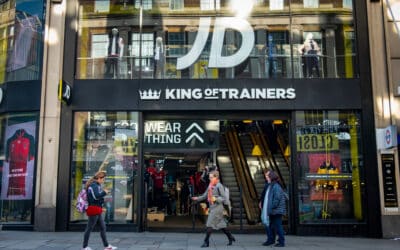Mary Keane-Dawson, Group CEO of leading influencer agency TAKUMI, looks at how the marketing world is reacting to the coronavirus outbreak, and goes back to the Great Depression of 1929 to provide some insights on the approach marketers should be taking now.
At the start of December last year, GroupM, the world’s largest advertising media company, produced a report which predicted that the UK advertising sector would grow by 6.7% in 2020 and end the year worth £24bn.
The report went onto argue that despite all the uncertainty the UK faced in 2019, the media industry held strong and grew by 7.8%, the sixth consecutive year of mid-to-high-single-digit growth. Such consistent year-on-year growth led the report to conclude that within five years the UK would match Japan’s size and become the world’s third-largest advertising market.
However, as we all know, things haven’t gone according to plan. The coronavirus pandemic has disrupted every sector, including marketing. The lockdown and social distancing measures that have been put in place by governments around the world has essentially nullified the impact of print and out-of-home advertising and events for brands.
How brands are reacting to coronavirus
As a result, we’ve seen brands rapidly scale back their marketing activity. 62% of marketers have changed their marketing strategies due to COVID-19, only 14% of UK marketing campaigns are now continuing ‘as planned’, and imagery of human interaction has declined by 24.7% in social ads.
While some brands have dialled down their marketing, others have completely paused all activity. Most notably, Coca-Cola, who spent $5.8bn on advertising in 2018, announced in late March that it was stopping all Q2 marketing efforts in the UK due to the economic uncertainty caused by the pandemic.
Why brands shouldn’t pull the plug on advertising
Although it may be tempting for other brands to follow Coca-Cola’s lead, there is substantial evidence that turning the tap off on marketing during times of crisis may do more harm than good in the long-term.
A 2009 study looked at brands in 1929 and how their response to the Great Depression impacted their fortunes in the years after. One of the brands studied was Procter & Gamble who, unlike its competitors, ramped up its marketing investments after the 1929 crash and went on to dominate share of voice in radio advertising. The brand is now worth $230bn.
The study found that brands who maintained advertising spend during turbulent times benefitted in the long-term due to maintaining their brand equity and share of voice. This, in turn, kept the brand and its products fresh in the mind of the consumer.
The same lesson applies nearly a hundred years later. Brands that disappear from the public eye risk disappearing from the mind of the consumer and may need to rebuild their brand awareness once the coronavirus crisis has passed. But how can brands appeal to consumers when the usual routes, such as OOH advertising or print, are not relevant?
Why brands need to look into TV and digital ads
With quarantine measures continuing for the foreseeable future, mobile phone usage, social media consumption and TV viewership is skyrocketing around the world.
In March, Vodafone reported a 50% rise in internet use, TalkTalk’s daytime traffic has risen by 20% since the UK went into lockdown late last month and TV viewership has also increased with the BBC revealing a doubling of average 2019 audiences for its Six O’Clock News for example. These statistics all suggest that digital and TV ads will be key marketing avenues for brands to use during the coronavirus crisis. However, the type of content we’re seeing produced for this traditional medium is changing.
With TV crews grounded, production studios shut and corporate video firms either working from home or furloughed, we’re seeing brands utilize UGC and influencer content for TV ads.
The reasoning behind this switch is clear – influencer content is quick to produce, flexible and can generate a diverse mix of unique and high-quality creative content that can help a brand stand out in today’s congested market. Also, production costs will be a fraction of that of a traditional TV ad – which will be vital as brands look to reduce budgets and prepare for the economic fallout of the pandemic.
The importance of influencer marketing as an awareness channel
But the spike in internet usage is also resulting in increased user engagement with influencer content – there was a 76% increase in daily accumulated likes on Instagram #ad posts during the first two weeks of March.
Although it may be tempting, brands shouldn’t rush to post content on social media or employ some of the same tactics they used for influencer marketing before the coronavirus crisis. The landscape has changed for consumers as well as brands. Now, consumers are panicked about the unprecedented situation we are currently in and are crying out for content that is either fun and engaging or informative and helpful.
Publishing insensitive messaging at such a difficult time or content which fails to acknowledge the COVID-19 crisis may put off or frustrate your audience. Instead, marketers and influencers should prioritise a more considered approach with content that is authentic, thoughtful and creative.
TAKUMI, for example, has launched a multimarket pro-bono campaign across TikTok and Instagram. Using #TheMindfulMovement, influencers were encouraged to support mental health during the coronavirus outbreak and connect with their followers. It was a great example of how influencers can create entertaining and engaging content that simultaneously supports public health.
Adapting your marketing activity in this way, at a time when traditional marketing routes are being closed off, will be crucial to the resilience of brands during the current lockdown. And, we can learn from the past, that those brands who find effective ways to continue marketing in times of crisis will emerge from it stronger.










